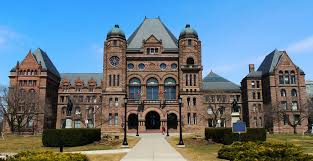This article was published by National Review online on November 27, 2017
 |
| Wesley Smith |
By Wesley J. Smith
Euthanasia costs lives. Not only do doctors kill people who ask to die–generally without even attempting suicide prevention services–but the ethics-altering values of euthanasia/assisted suicide devalue despairing lives generally.
For example, several years ago, a woman named Kerrie Woolterton in the UK swallowed anti-freeze and called an ambulance, the latest of several such suicide attempts. But she pinned a note to her blouse refusing treatment. Despite the medical ability to save her–which had succeeded with Woolterton on previous occasions–doctors honored her “choice” and just let her die (painfully) over a 24-hour period.
In Quebec, which has legalized lethal injection euthanasia, some doctors have been letting people who attempt suicide die without treatment–even though they could be saved–thereby “completing” their suicides. From the National Post story:
Quebec’s College of Physicians has issued an ethics bulletin to its members after learning that some doctors were allowing suicide victims to die when life-saving treatment was available.
The bulletin says the college learned last fall that, “in some Quebec hospitals, some people who had attempted to end their lives through poisoning were not resuscitated when, in the opinion of certain experts, a treatment spread out over a few days could have saved them with no, or almost no, aftereffects.”
How many of those people would have been glad their lives were saved, as sometimes happens when suicides fail? We’ll never know because they are dead.
Even as they take action to save some suicidal patients, the College abandons others:
From a moral point of view, this duty to act to save the patient’s life, or to prevent him from living with the effects of a too-late intervention, rests on principles of doing good and not doing harm, as well as of solidarity,” it reads. “It would be negligent not to act.”
It says treatment should be withheld only in cases where a physician has “irrefutable proof” of a patient’s wishes in the form of an advance medical directive or a do-not-resuscitate order.
Oh. In other words, another group of people abandoned to suicide, in addition to those whom doctors personally kill when asked due to illness or disability.
Euthanasia corrupts everything it touches, including the basic ethics of medicine and common human decency.



























